In the realm of international trade, understanding shipping terms is crucial for both importers and exporters. These terms, also known as Incoterms (International Commercial Terms), are standardized international trade terms published by the International Chamber of Commerce (ICC). They define the responsibilities of buyers and sellers in the delivery of goods, clarifying who is responsible for transportation, documentation, customs clearance, and other logistics processes. Among these terms, DDU (Delivered Duty Unpaid) and DDP (Delivered Duty Paid) are widely used and essential for importers to comprehend.
For importers, choosing the right shipping term can significantly impact the overall cost, risk, and efficiency of their supply chain. Understanding DDU and DDP helps importers make informed decisions about their logistics strategy, manage costs more effectively, and minimize potential risks. By knowing the key differences between DDU and DDP, importers can better negotiate terms with their suppliers and ensure smoother transactions.
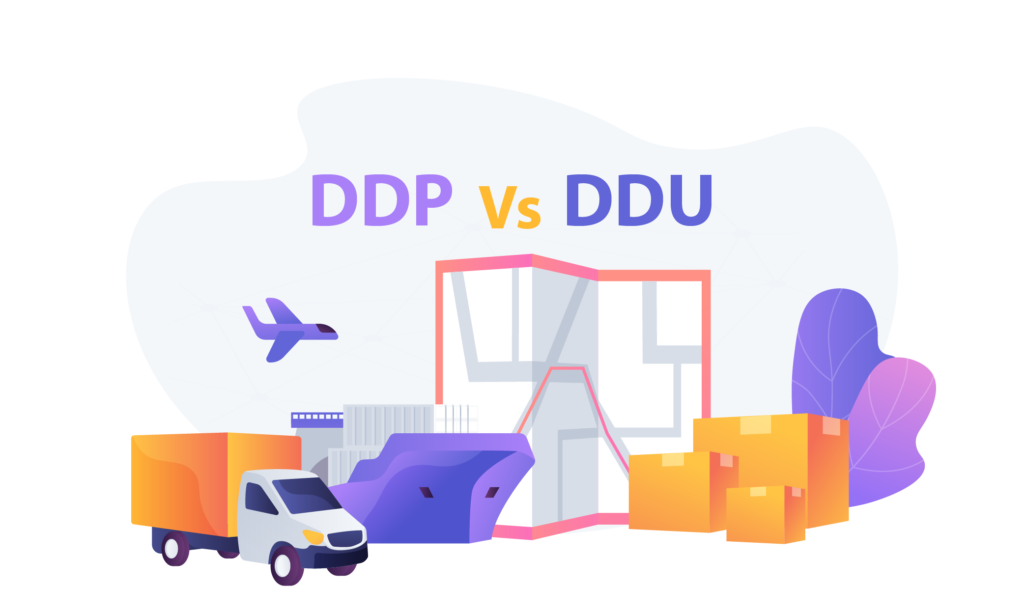
Table of Contents
What is DDU (Delivered Duty Unpaid)?
Definition and Explanation
DDU (Delivered Duty Unpaid) is an Incoterm where the seller is responsible for delivering the goods to the destination country, but the buyer is responsible for paying any import duties and taxes. The seller takes care of all transportation and logistics up to the point of delivery, excluding import duty and taxes.
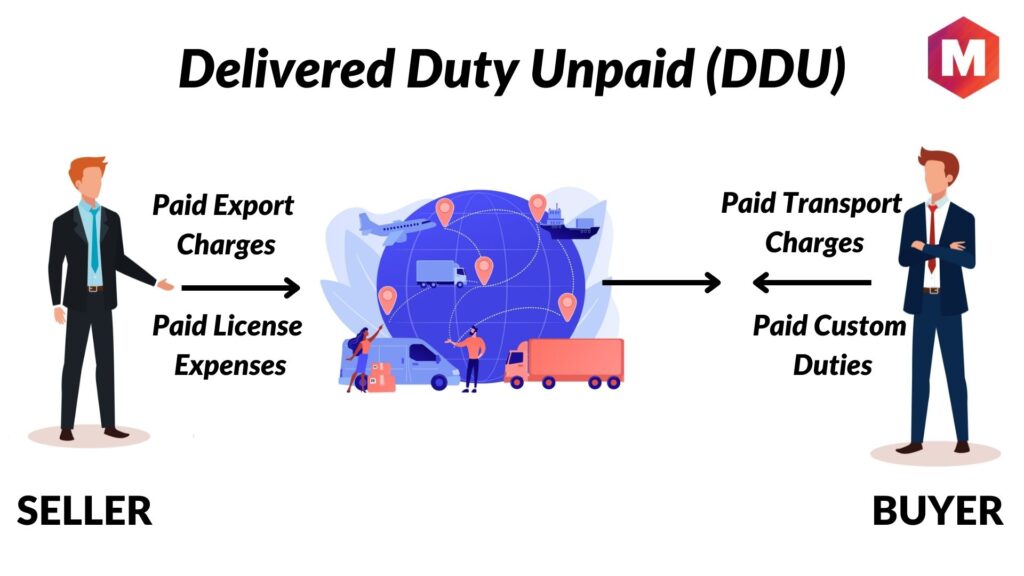
Responsibilities of the Seller and Buyer under DDU
- Seller’s Responsibilities:
- Arranging and paying for transportation to the destination country.
- Handling export customs clearance.
- Providing necessary documentation for shipment.
- Ensuring the goods reach the specified destination.
- Buyer’s Responsibilities:
- Paying import duties, taxes, and any other import charges.
- Handling import customs clearance.
- Taking possession of the goods once they arrive at the destination.
Pros and Cons of Using DDU
Pros:
- Cost Control: Buyers have control over import duties and taxes, potentially saving costs if they have favorable import arrangements.
- Flexibility: Buyers can choose their preferred customs broker for import clearance.
- Reduced Seller Burden: Sellers do not have to worry about handling import duties and taxes.
Cons:
- Complexity: Buyers must handle the complexities of import customs clearance and associated costs.
- Potential Delays: Delays may occur if buyers are not prepared for the customs clearance process.
- Risk of Unforeseen Costs: Buyers may face unexpected charges or complications during import.
Example Scenarios Where DDU Might Be Advantageous
- Experienced Importers: Companies that have established relationships with customs brokers and are familiar with the import clearance process.
- Cost-Sensitive Transactions: Situations where buyers want to have control over import duties and taxes to potentially reduce costs.
- Specialized Goods: Importers dealing with specialized goods that require specific customs documentation and handling.
What is DDP (Delivered Duty Paid)?
Definition and Explanation
DDP (Delivered Duty Paid) is an Incoterm where the seller takes full responsibility for delivering the goods to the buyer’s location, including all costs associated with transportation, export and import customs clearance, and payment of import duties and taxes. In this arrangement, the seller assumes the highest level of responsibility in the shipping process.

Responsibilities of the Seller and Buyer under DDP
- Seller’s Responsibilities:
- Arranging and paying for transportation to the final destination.
- Handling both export and import customs clearance.
- Paying all import duties, taxes, and any other import charges.
- Ensuring the goods are delivered to the final destination specified by the buyer.
- Buyer’s Responsibilities:
- Taking possession of the goods upon delivery.
- Minimal involvement in the logistics process.
Pros and Cons of Using DDP
Pros:
- Simplicity: Simplifies the import process for buyers, as the seller handles all logistics, duties, and taxes.
- Reduced Risk: Minimizes the buyer’s risk of unexpected costs and delays associated with customs clearance.
- Predictable Costs: Provides buyers with a clear understanding of total costs, as all charges are included in the seller’s price.
Cons:
- Higher Seller Burden: Sellers take on significant responsibility and risk, including managing import regulations and costs.
- Potentially Higher Prices: Sellers may charge higher prices to cover the costs and risks associated with DDP.
- Limited Control: Buyers have less control over the customs clearance process and associated costs.
Example Scenarios Where DDP Might Be Advantageous
- Inexperienced Importers: Companies new to importing or those that lack expertise in customs clearance.
- Time-Sensitive Deliveries: Situations where quick and hassle-free delivery is critical, and buyers prefer to avoid potential delays.
- High-Value Goods: Transactions involving high-value goods where buyers want to avoid the risk of unexpected import charges and complications.
By understanding the nuances of DDU (Delivered Duty Unpaid) and DDP (Delivered Duty Paid), importers can make informed decisions that best suit their business needs and logistical capabilities.
Key Differences Between DDU and DDP
When deciding between DDU (Delivered Duty Unpaid) and DDP (Delivered Duty Paid), it’s essential to understand the key differences in responsibilities, costs, and risks associated with each term. Below, we break down these differences to help importers make informed decisions.
Comparison of Responsibilities
| Aspect | DDU (Delivered Duty Unpaid) | DDP (Delivered Duty Paid) |
|---|---|---|
| Transportation | Seller arranges and pays for transportation to the destination country. | Seller arranges and pays for transportation to the buyer’s final location. |
| Export Customs Clearance | Seller is responsible for handling export customs clearance. | Seller is responsible for handling export customs clearance. |
| Import Customs Clearance | Buyer is responsible for handling import customs clearance. | Seller is responsible for handling import customs clearance. |
| Import Duties and Taxes | Buyer pays for all import duties, taxes, and charges upon arrival of the goods. | Seller pays for all import duties, taxes, and charges as part of the delivery process. |
| Delivery Point | Goods are delivered to the agreed-upon destination in the buyer’s country, but not cleared through customs. | Goods are delivered to the final destination specified by the buyer, fully cleared through customs. |
Cost Implications
DDU:
- The buyer is responsible for paying import duties and taxes, which can lead to varying costs depending on the destination country’s regulations.
- The seller’s costs are generally lower as they do not need to cover import charges.
DDP:
- The seller includes all costs, including import duties and taxes, in the price of the goods, providing the buyer with a clear total cost upfront.
- The seller’s pricing may be higher to account for the additional responsibilities and risks.
Risk Management
DDU:
- Buyers assume more risk, particularly in dealing with customs clearance and potential delays or additional charges.
- Sellers have less risk as they do not handle import duties or customs clearance in the destination country.
DDP:
- Sellers assume more risk, including managing import regulations and paying all associated costs.
- Buyers experience less risk and complexity, as the seller handles all logistics and import processes.
Which is Better: DDU or DDP?
Choosing between DDU and DDP ultimately depends on various factors, including the nature of the goods, the buyer’s and seller’s preferences, market conditions, and the regulatory environment. Below, we explore these considerations to determine which option might be better for different scenarios.
Factors Influencing the Choice Between DDU and DDP
- Nature of Goods:
- High-value or sensitive goods might benefit from DDP, as it simplifies the import process and reduces the risk of delays or additional charges.
- Standard goods with no special handling requirements might be suitable for DDU, allowing buyers to manage import costs more effectively.
- Buyer’s and Seller’s Preferences:
- Buyers with experience in customs clearance might prefer DDU to have control over import duties and taxes.
- Sellers willing to take on more responsibility to provide a hassle-free experience for buyers might opt for DDP.
- Market Conditions:
- In markets with complex or high import duties, DDP can simplify transactions and avoid unexpected costs.
- In markets with straightforward import processes, DDU might be more cost-effective for buyers.
- Regulatory Environment:
- Countries with stringent import regulations may favor DDP to ensure compliance and avoid potential penalties or delays.
- In regions with less stringent import rules, DDU could be more advantageous for buyers looking to optimize costs.
Case Studies Highlighting Successful Use of DDU and DDP
Case Study 1: Using DDU for Cost Control
A European importer of electronics chose DDU for their shipments from China. With established relationships with local customs brokers and a deep understanding of import regulations, they managed to reduce overall costs by handling import duties and taxes themselves.
Case Study 2: Using DDP for Streamlined Operations
A North American retailer dealing in high-value fashion items opted for DDP to ensure a seamless delivery process. By having the seller handle all logistics, including import duties and taxes, they minimized delays and provided a predictable cost structure, enhancing their customer satisfaction.
How Dantful International Logistics Can Help
Navigating the complexities of international shipping, especially with terms like DDU (Delivered Duty Unpaid) and DDP (Delivered Duty Paid), can be challenging. Dantful International Logistics offers specialized services to simplify this process, ensuring efficient, cost-effective deliveries.
Comprehensive Services
We provide a full range of logistics solutions, including Air Freight, Ocean Freight, Warehouse Services, Customs Clearance,DDP Shipping Services, and Insurance Services. Our tailored solutions cater to your specific needs, whether you prefer DDU or DDP.
Expertise in DDU and DDP
- For DDU Shipments: We handle transportation, documentation, and provide import guidance, letting you manage import duties and taxes with ease.
- For DDP Shipments: We offer end-to-end service, covering all logistics, import duties, and taxes, giving you a clear cost structure and reducing risks.
Benefits of Partnering with Us
- Global Reach: Reliable delivery to any destination worldwide.
- Cost Efficiency: Competitive rates without compromising quality.
Dantful International Logistics Services:
- Dantful Ocean Freight Services
- Air Freight From China
- Amazon FBA Freight Forwarding
- WAREHOUSE Services
- One-Stop Customs Clearance Solution
- Cargo Insurance Services in China
- DDP Shipping Services By Dantful Logistics
- Out of Gauge Cargo Transportation Shipping Services
FAQ
What Are Incoterms?
Incoterms (International Commercial Terms) are a series of pre-defined commercial terms published by the International Chamber of Commerce (ICC) that are used in international commercial transactions or procurement processes. They clarify the tasks, costs, and risks associated with the transportation and delivery of goods.
What Is the Main Difference Between DDU and DDP?
The primary difference between DDU (Delivered Duty Unpaid) and DDP (Delivered Duty Paid) is the responsibility for import duties and taxes. Under DDU, the buyer is responsible for these charges, while under DDP, the seller assumes all costs, including import duties and taxes.
How Do I Choose Between DDU and DDP?
Choosing between DDU and DDP depends on various factors such as the nature of the goods, your familiarity with import processes, the regulatory environment, and market conditions. Assess your specific needs and preferences, and consider consulting a professional logistics service provider like Dantful International Logistics for expert advice.
Are There Any Hidden Costs with DDU or DDP?
With DDU, there may be unforeseen costs related to import duties, taxes, and customs clearance that the buyer must handle. DDP typically includes all costs in the seller’s price, offering a clear and predictable cost structure, but the seller may charge a premium to cover the additional responsibilities and risks.
Can I Switch from DDU to DDP After the Contract Is Signed?
Switching from DDU to DDP after a contract is signed can be challenging and may require renegotiation of terms with the seller. It is best to decide on the appropriate Incoterm during the initial contract negotiations to avoid complications later.
References
- International Chamber of Commerce (ICC) – The ICC is the global body that publishes the Incoterms rules, providing standardized definitions and interpretations for international trade terms. ICC Incoterms 2020
- World Customs Organization (WCO) – The WCO provides guidelines and regulations for customs procedures, helping traders understand the customs clearance process. WCO Guidelines
- Statista – Provides up-to-date statistics on global trade, shipping costs, and market trends, offering valuable insights for importers and exporters. Statista Global Trade Data
- Drewry Shipping Consultants – Offers comprehensive analysis and reports on shipping rates, market conditions, and logistics trends. Drewry Maritime Research
- International Trade Administration (ITA) – Provides resources and guidance for businesses involved in international trade. ITA Resources
- Export.gov – Offers information and services for U.S. businesses to navigate international trade regulations and procedures. Export.gov

Young Chiu is a seasoned logistics expert with over 15 years of experience in international freight forwarding and supply chain management. As CEO of Dantful International Logistics, Young is dedicated to providing valuable insights and practical advice to businesses navigating the complexities of global shipping.






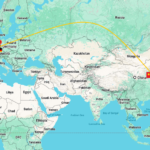



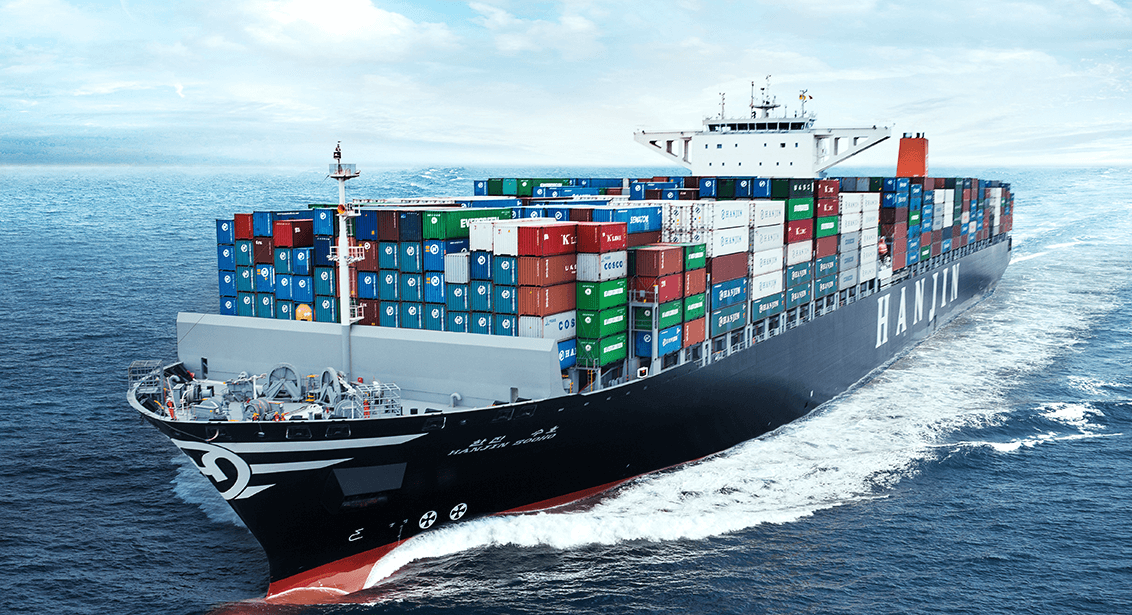
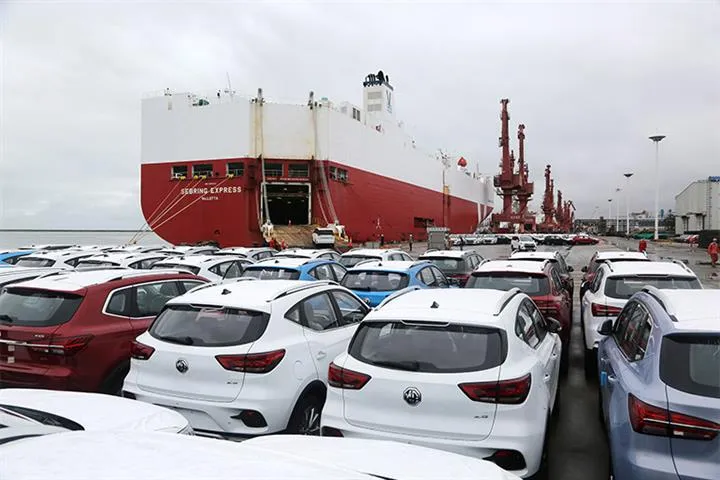

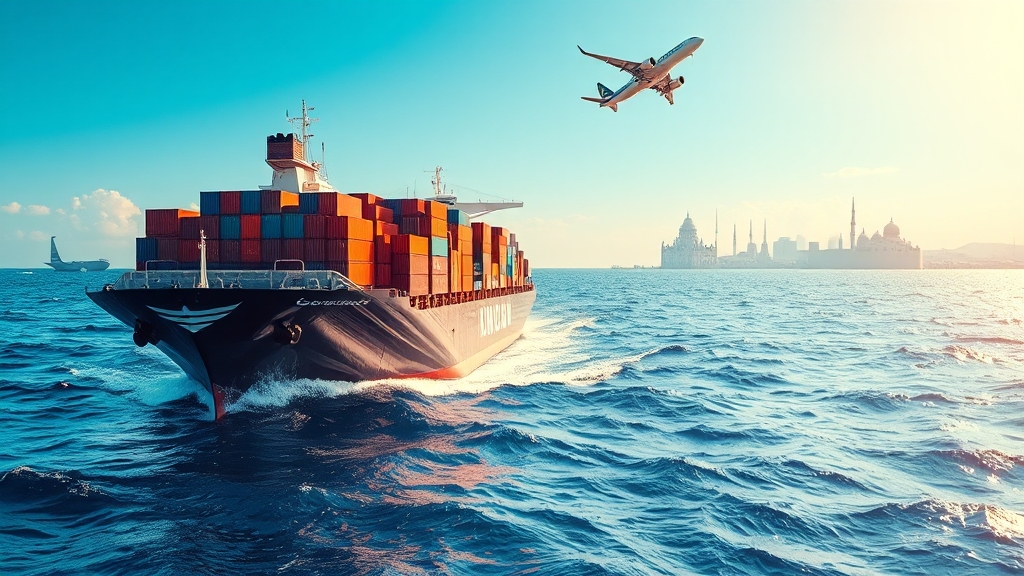
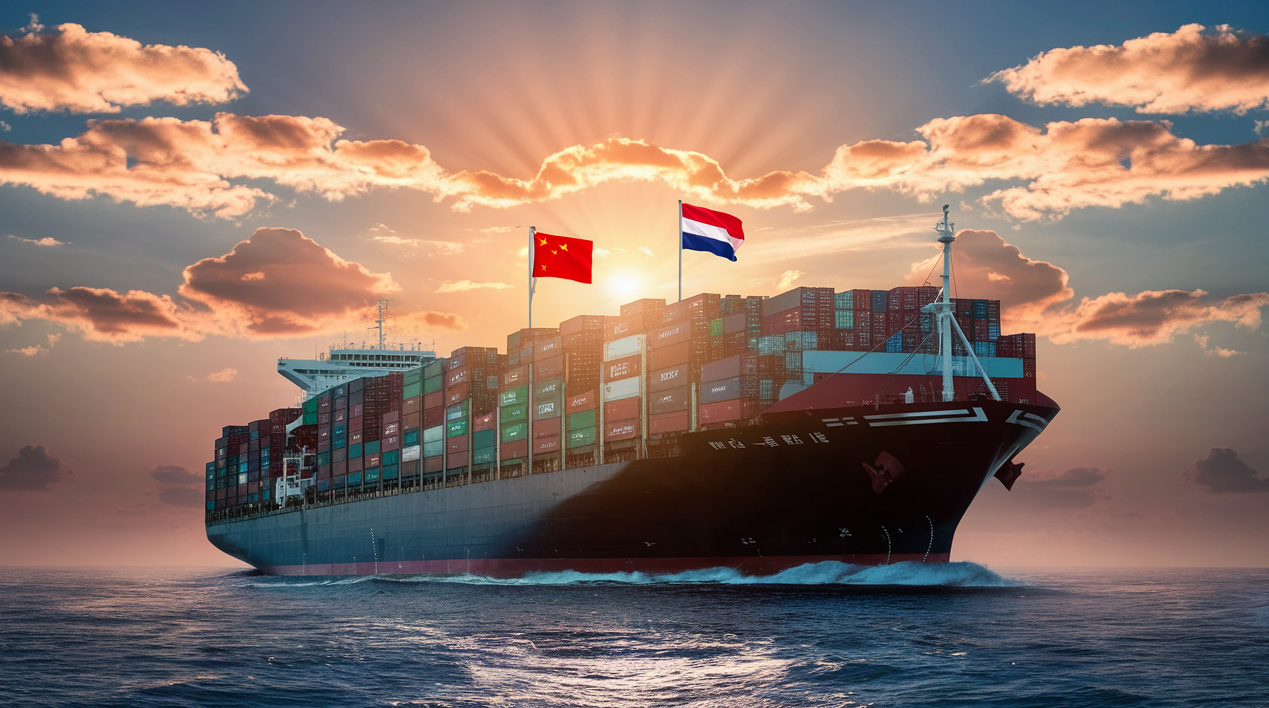





 Afrikaans
Afrikaans Shqip
Shqip አማርኛ
አማርኛ العربية
العربية Հայերեն
Հայերեն Azərbaycan dili
Azərbaycan dili Euskara
Euskara Беларуская мова
Беларуская мова বাংলা
বাংলা Bosanski
Bosanski Български
Български Català
Català Cebuano
Cebuano Chichewa
Chichewa 简体中文
简体中文 繁體中文
繁體中文 Corsu
Corsu Hrvatski
Hrvatski Čeština
Čeština Dansk
Dansk Nederlands
Nederlands English
English Esperanto
Esperanto Eesti
Eesti Filipino
Filipino Suomi
Suomi Français
Français Galego
Galego ქართული
ქართული Deutsch
Deutsch Ελληνικά
Ελληνικά Kreyol ayisyen
Kreyol ayisyen Harshen Hausa
Harshen Hausa Ōlelo Hawaiʻi
Ōlelo Hawaiʻi עִבְרִית
עִבְרִית हिन्दी
हिन्दी Hmong
Hmong Magyar
Magyar Íslenska
Íslenska Igbo
Igbo Bahasa Indonesia
Bahasa Indonesia Gaeilge
Gaeilge Italiano
Italiano 日本語
日本語 Basa Jawa
Basa Jawa ಕನ್ನಡ
ಕನ್ನಡ Қазақ тілі
Қазақ тілі ភាសាខ្មែរ
ភាសាខ្មែរ 한국어
한국어 كوردی
كوردی Кыргызча
Кыргызча ພາສາລາວ
ພາສາລາວ Latin
Latin Latviešu valoda
Latviešu valoda Lietuvių kalba
Lietuvių kalba Lëtzebuergesch
Lëtzebuergesch Македонски јазик
Македонски јазик Malagasy
Malagasy Bahasa Melayu
Bahasa Melayu മലയാളം
മലയാളം Maltese
Maltese Te Reo Māori
Te Reo Māori मराठी
मराठी Монгол
Монгол ဗမာစာ
ဗမာစာ नेपाली
नेपाली Norsk bokmål
Norsk bokmål پښتو
پښتو فارسی
فارسی Polski
Polski Português
Português ਪੰਜਾਬੀ
ਪੰਜਾਬੀ Română
Română Русский
Русский Samoan
Samoan Gàidhlig
Gàidhlig Српски језик
Српски језик Sesotho
Sesotho Shona
Shona سنڌي
سنڌي සිංහල
සිංහල Slovenčina
Slovenčina Slovenščina
Slovenščina Afsoomaali
Afsoomaali Español
Español Basa Sunda
Basa Sunda Kiswahili
Kiswahili Svenska
Svenska Тоҷикӣ
Тоҷикӣ தமிழ்
தமிழ் తెలుగు
తెలుగు ไทย
ไทย Türkçe
Türkçe Українська
Українська اردو
اردو O‘zbekcha
O‘zbekcha Tiếng Việt
Tiếng Việt Cymraeg
Cymraeg יידיש
יידיש Yorùbá
Yorùbá Zulu
Zulu